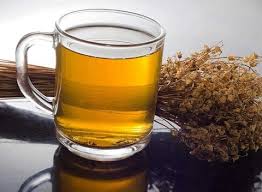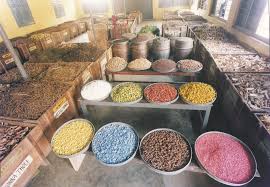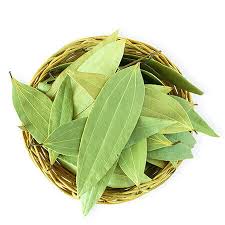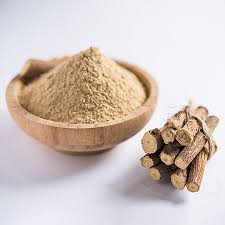
Jadi Buti Wholesale vs. Retail: Which is Better for Business?
Starting a business in Jadi Buti (medicinal herbs) requires choosing between wholesale and retail models. Each business type has its own advantages and challenges, depending on factors such as investment, profit margins, market demand, and supply chain management.
At Dirghaanshi, we help businesses understand the key differences between wholesale and retail Jadi Buti business models. This article explores the pros and cons of each approach, factors to consider before starting, and tips for running a successful herbal business.
Long Description (With SEO Points)
- Understanding Wholesale and Retail Jadi Buti Business
A. What is Jadi Buti Wholesale?
Wholesale refers to bulk purchasing of medicinal herbs from farmers or suppliers and selling them to retailers, herbal manufacturers, and Ayurvedic companies.
Key Features of Wholesale Jadi Buti Business:
Buying herbs in large quantities at lower prices.
Selling to businesses rather than individual customers.
Requires storage facilities and supply chain management.
Profits depend on volume sales and supplier relationships.
B. What is Jadi Buti Retail?
Retail involves selling directly to end consumers through physical stores or e-commerce platforms.
Key Features of Retail Jadi Buti Business:
Selling smaller quantities of herbs at higher prices.
Direct interaction with customers and Ayurveda practitioners.
Requires a good marketing strategy to attract buyers.
Profit margins are higher, but sales volume is lower.
- Wholesale vs. Retail: Key Differences
Feature Wholesale Jadi Buti Retail Jadi Buti
Investment Requires higher initial investment for bulk purchases Lower investment required
Profit Margins Lower per-unit profit, but higher total revenue Higher per-unit profit, but lower total sales
Target Customers Businesses, Ayurvedic clinics, and manufacturers Individual customers and herbal users
Storage & Logistics Needs proper warehousing and bulk transportation Smaller storage space required
Market Demand Depends on bulk buyers and industry trends Customer-driven, requires strong branding
Risk Factor Higher risk due to bulk stock management Moderate risk with manageable inventory - Pros and Cons of Wholesale Jadi Buti Business
Advantages of Wholesale:
Lower cost per unit, leading to competitive pricing.
Steady demand from Ayurvedic companies and herbal product manufacturers.
Higher sales volume ensures stable revenue.
Can expand business internationally through bulk exports.
Challenges of Wholesale:
Requires large capital to buy herbs in bulk.
Needs a strong supply chain to manage large inventory.
Prices are influenced by market fluctuations and seasonal availability.
Requires proper quality testing and certification.
- Pros and Cons of Retail Jadi Buti Business
Advantages of Retail:
Higher profit margins on individual sales.
Easier to start with low investment.
Direct interaction with customers builds trust.
Can target niche markets such as organic herbal users.
Challenges of Retail:
Lower sales volume compared to wholesale.
Requires effective marketing and branding to attract buyers.
Needs a strong online presence to compete with big herbal brands.
Pricing competition with supermarkets and online marketplaces.
- Which Business Model is Right for You?
A. Choose Wholesale If:
You have sufficient capital to invest in bulk purchases.
You can establish partnerships with large Ayurvedic brands and manufacturers.
You have access to reliable Jadi Buti suppliers and storage facilities.
You are willing to handle large-scale logistics and distribution.
B. Choose Retail If:
You prefer low investment and quick entry into the herbal market.
You want to sell directly to consumers through a physical store or online shop.
You have strong marketing skills and can build customer relationships.
You plan to focus on niche products like organic herbs or specific remedies.
- Tips for Success in Jadi Buti Business
For Wholesale Business:
Partner with certified herbal suppliers for high-quality herbs.
Invest in bulk storage and proper herb preservation methods.
Establish B2B connections with Ayurvedic brands and herbal manufacturers.
Get Ayush and GMP certifications for credibility.
For Retail Business:
Build an engaging e-commerce store with herbal product listings.
Use social media marketing to attract health-conscious customers.
Offer small herbal packs and subscription boxes to boost sales.
Educate customers about herbal benefits and product authenticity.
- Future Trends in the Herbal Industry
Increasing demand for organic and wild-harvested herbs.
E-commerce platforms expanding herbal product reach.
Growth in herbal supplement and Ayurvedic wellness industries.
AI-driven supply chain solutions for quality tracking.
Conclusion
Choosing between wholesale and retail Jadi Buti business depends on your investment capacity, market strategy, and business goals. Wholesale offers high-volume sales but requires larger investment, while retail provides higher profit margins with direct customer engagement.
By selecting the right model and implementing effective sourcing, marketing, and sales strategies, you can build a successful herbal business with long-term profitability.













